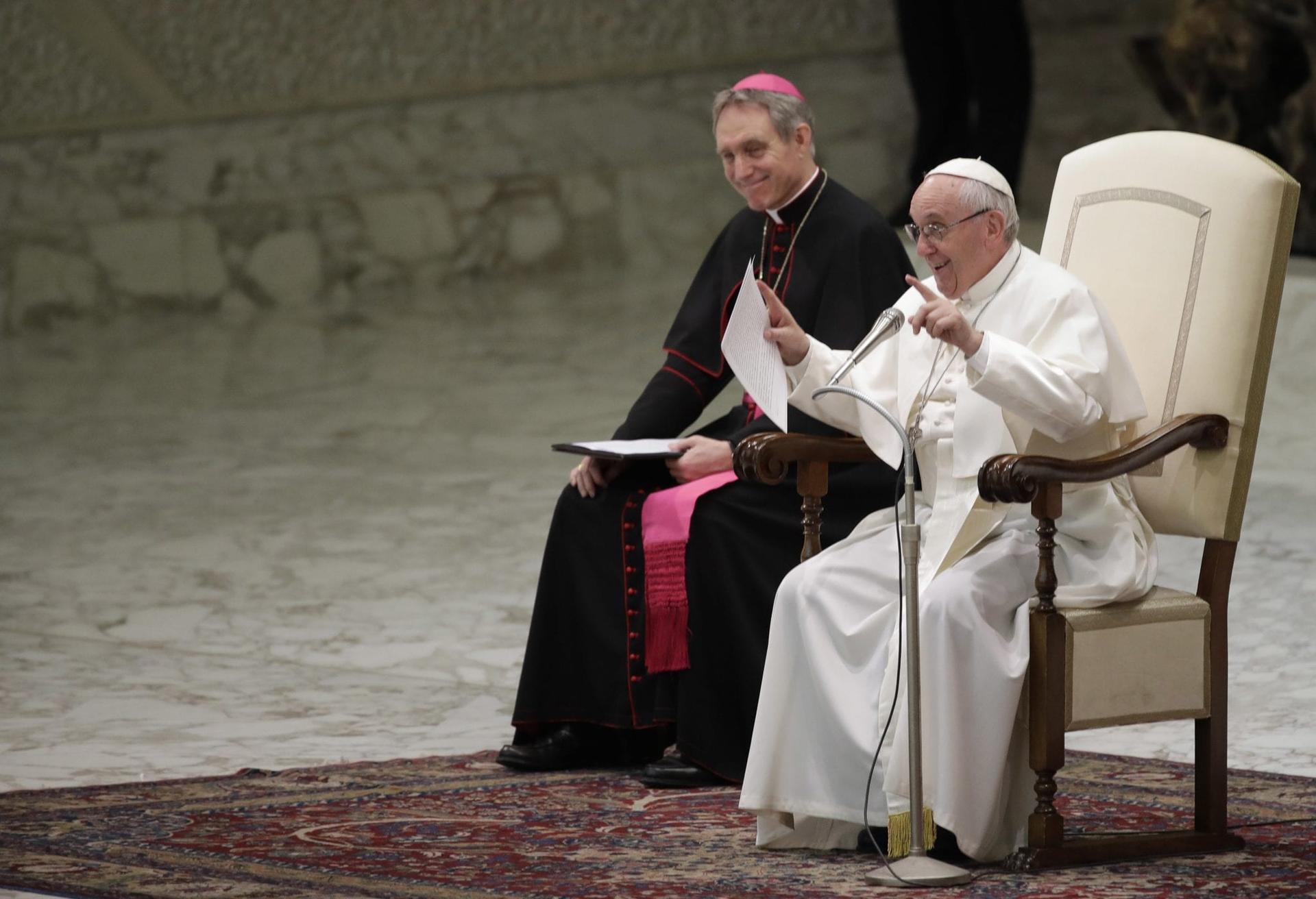ROME – Given how often Pope Francis rails against human trafficking, which is believed to claim 40 million victims worldwide, one might think he would regard those who operate this massively profitable illegal industry as public enemy number one.
To be sure, Francis did say on Monday he believes traffickers ought to be arrested. That said, he also strongly suggested that’s not where he thinks the real problem lies.
“Let me just say, if many young girls who are victims of trafficking end up on the streets of our cities, it’s because many men here – young, middle-aged and elderly – want their services and are prepared to pay for their own pleasure,” he said.
“I ask myself, therefore, are traffickers really the principal cause of trafficking?” the pope said.
“I believe that the principal cause is the egoism, without scruples, of many hypocritical people in our world,” Francis said. “Certainly, arresting the traffickers is a duty of justice. But the true solution is the conversion of hearts, cutting off the demand and drying up the market.”
Further, Francis said, “get-tough” approaches to trafficking premised largely on law enforcement crackdowns are, by themselves, “misleading,” because, due to the “economic interests in the background, they don’t want to go to the deep causes.”
Instead, the pope proposed a long-term anti-trafficking strategy which includes a law enforcement component, but which also features investments in education beginning in infancy and then youth employment.
“These two modes of growth, in the different phases of life, represent the antidotes to vulnerability and to trafficking,” he said.
Francis was speaking on Monday in an audience of participants in the World Day of Reflection, Prayer and Action Against Human Trafficking, which took place Feb. 8. The idea of the audience was for youth to be able to ask the pope how they could get involved in the cause.
The audience came on the heels of a Vatican meeting earlier this week of the Santa Marta Group, a group that brings together top law enforcement officials from around the world with Catholic leaders and anti-trafficking activists.
RELATED: Pope’s anti-trafficking group a matchmaker between cops and the Church
Francis said there’s “great ignorance” about human slavery in the early 21st century, and implied it’s not primarily because of a lack of information. Instead, he said, there’s often a “lack of will to understand the dimensions of the problem,” in part out of either shame or complicity.
For instance, he said, some don’t want to talk about it because they’re part of the “consumption chain” as users of “‘services’ offered in the streets or on the internet.”
Francis said the young offer special hope for breaking the wall of silence about trafficking, because they’re “less structured in their thinking, less clouded by prejudices, and freer to think for themselves.”
The pope charged the young not merely with being concerned about trafficking as a cause, but also making direct personal contact with its victims.
“Go into your parishes, or an association that’s close to home, and meet people, listen to them,” he said. “Don’t be afraid to meet them. Open your hearts, let them enter, and be ready to change.”
In that context, Francis reminded parishes around the world of his call for them to open their doors to welcoming people in need, including victims of human trafficking, and thanked parishes for their response so far to his appeal.
The pontiff insisted that victims must be protagonists in the anti-trafficking push.
“All those who’ve been victims of trafficking are an inexhaustible source of support for new victims, and very important informational resources for saving many other youth,” he said. “Young people who’ve met organized crime can play a key role in describing its dangers.”
The pope said that he hopes the upcoming Synod of Bishops of Young People, Faith and Vocational Discernment, to be held in the Vatican in October, will launch a “global youth mobilization” to build “inclusive and welcoming” societies.
“I want those who are real witnesses to the risks of trafficking in their own countries of origin to be able to find in the synod a place to express themselves,” Francis said. “It’s my great desire that young people representing the ‘peripheries’ are protagonists of this synod.”
He also said he hopes local churches take an interest in the event.
“My hope is that the synod also will be an opportunity for local churches to learn to work together and become a ‘network of salvation,’” he said.














